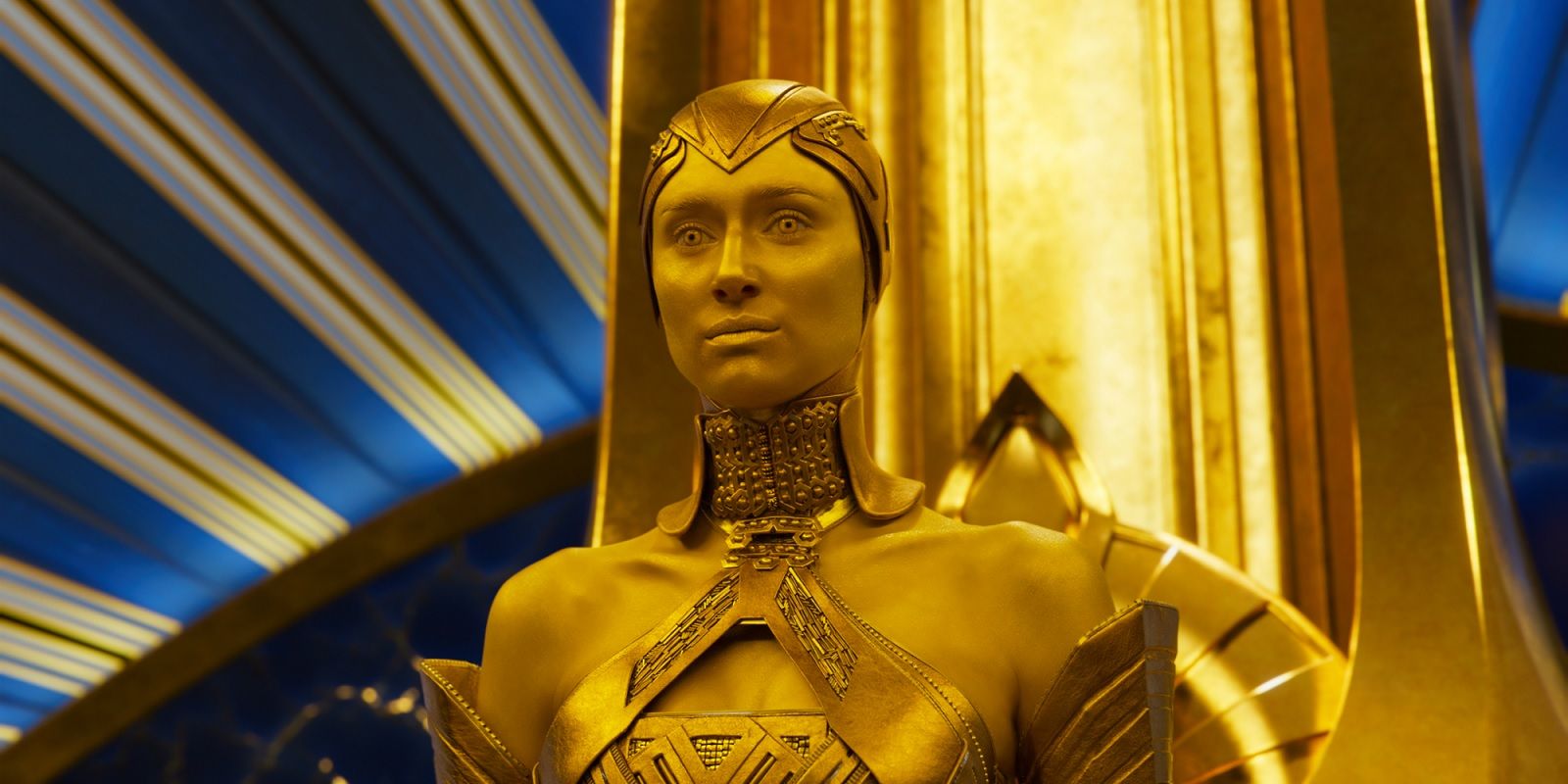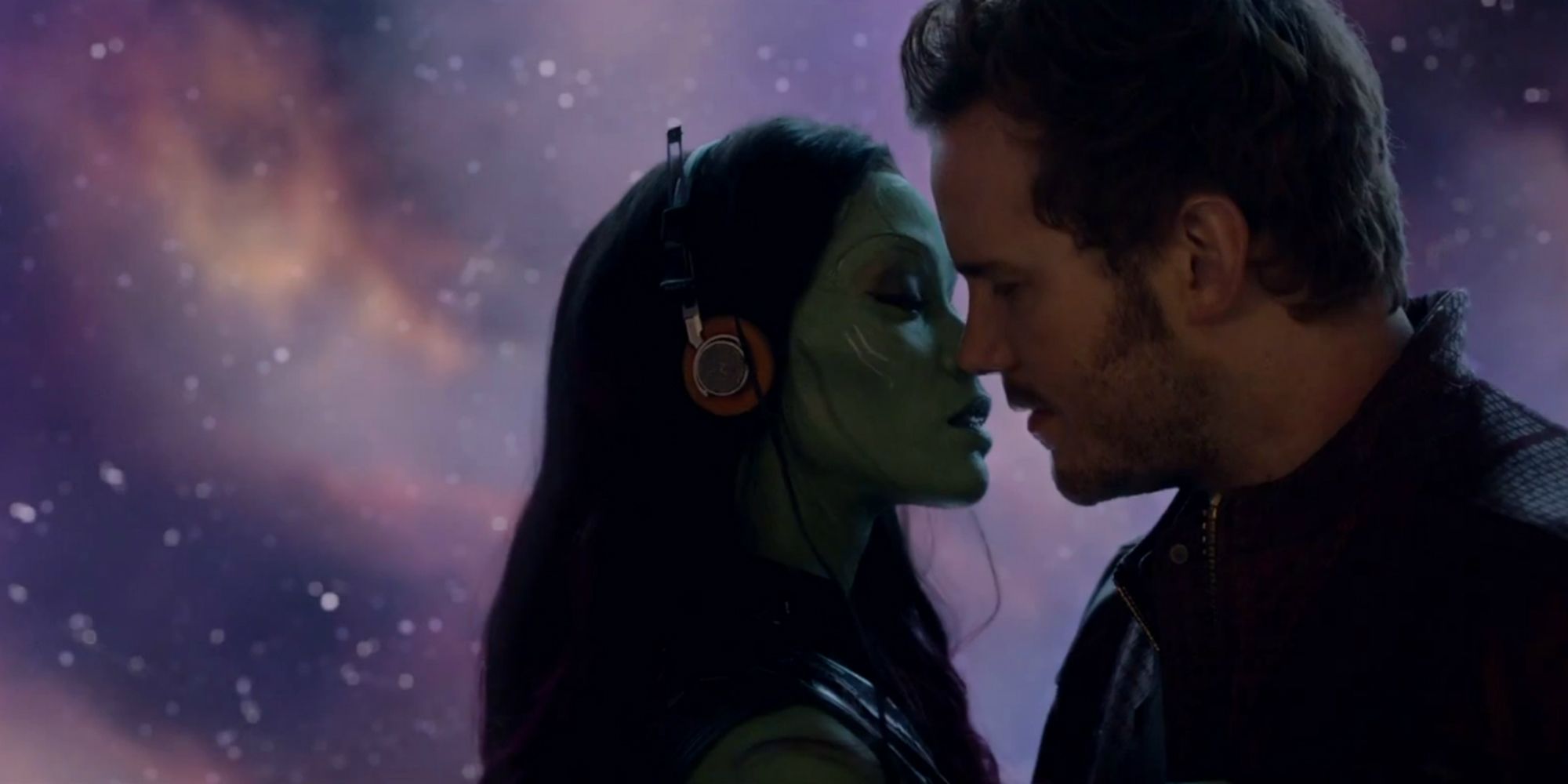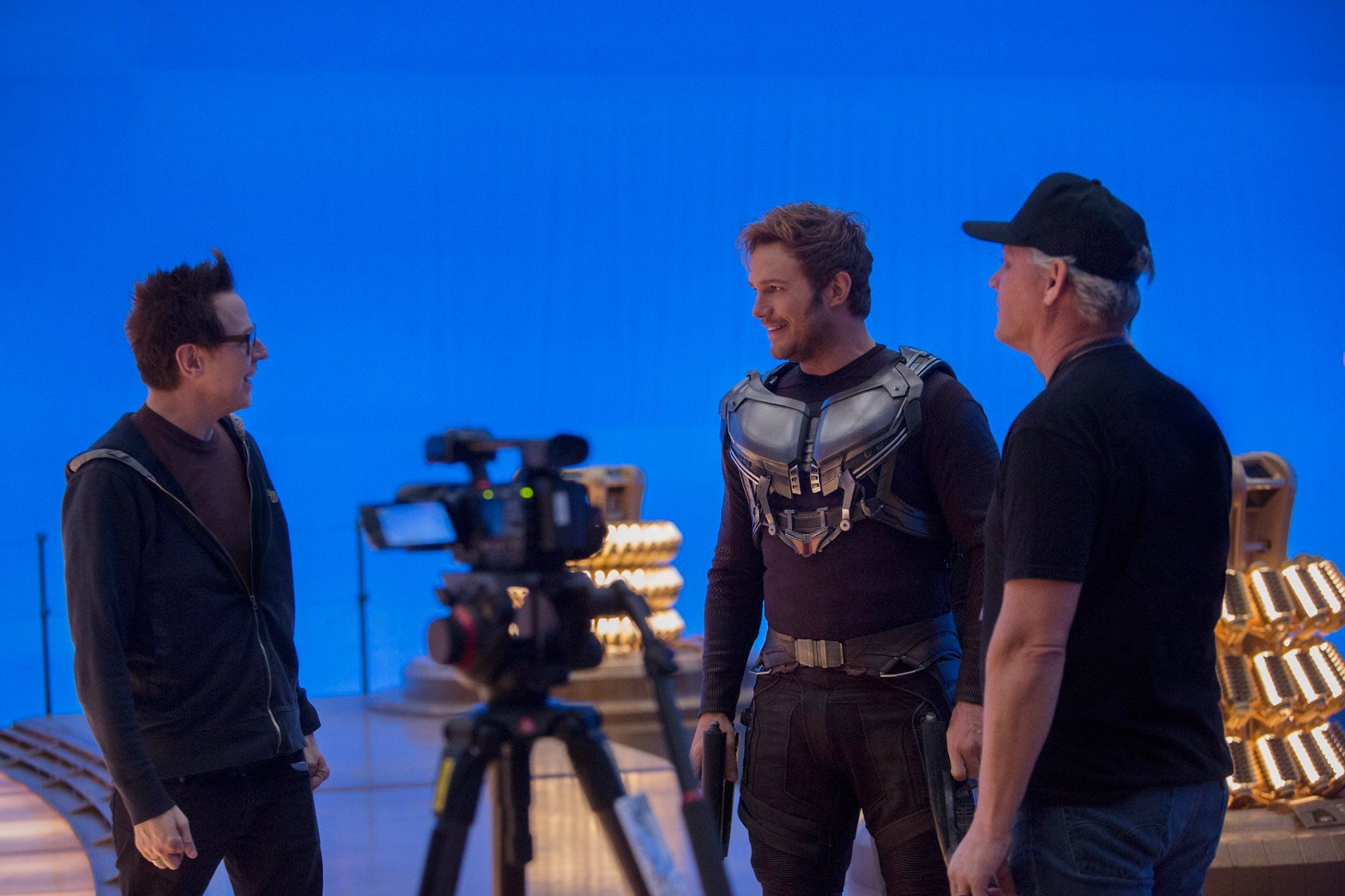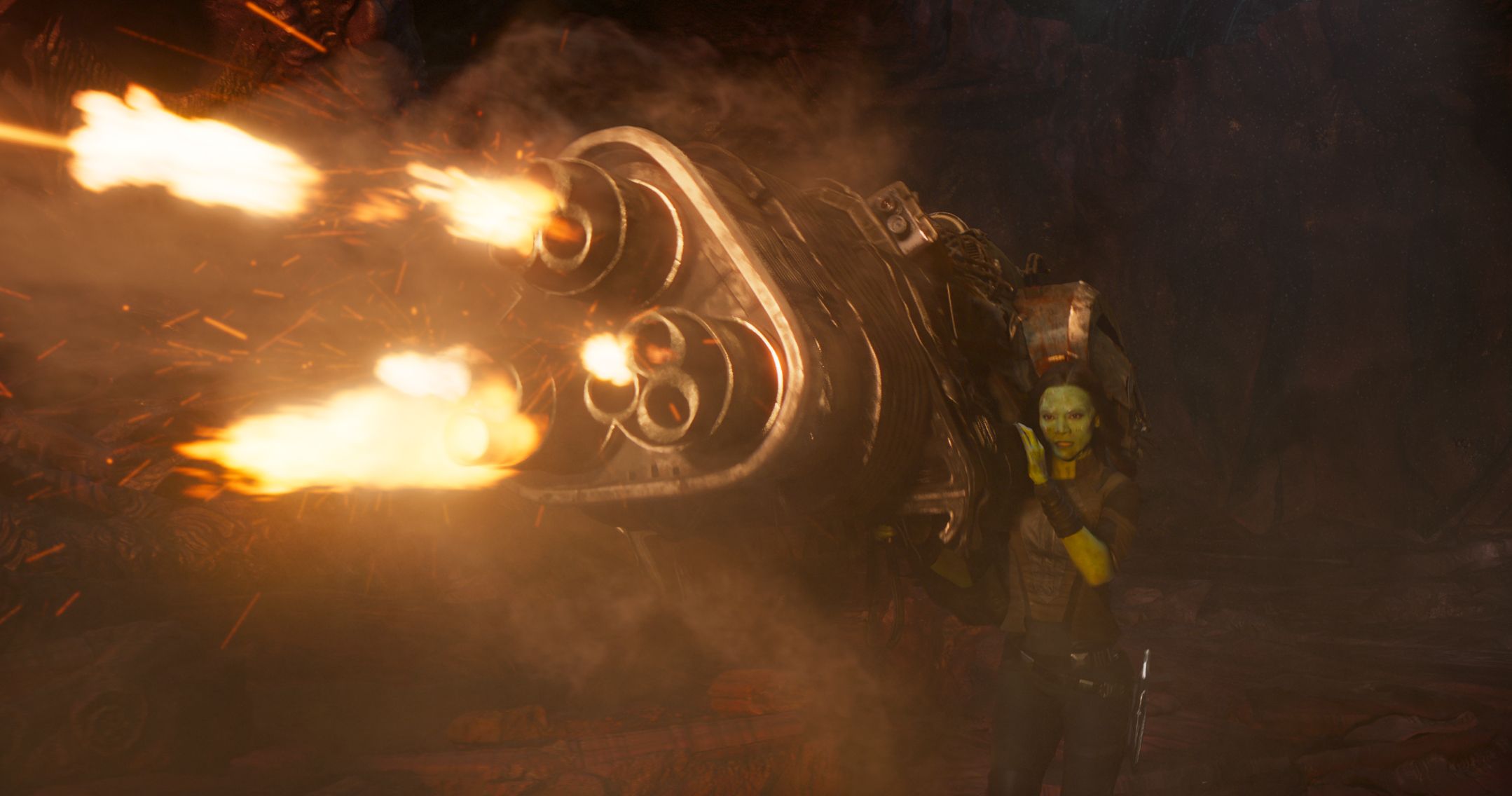The original Guardians of the Galaxy was one of the biggest risks on paper that Marvel Studios has made with its shared cinematic universe: a film that largely eschewed the continuity of the nine previous installments, that emphasized comedy over drama, that almost exclusively took place in deep space, and that – let’s be honest – starred a walking, talking raccoon and tree. That’s a staggering roll of the dice the company made (at the time), despite the financial security of the overarching meta-franchise.
That Guardians proved to be so successful (it’s the most profitable film to not star Iron Man [Robert Downey, Jr.], and that’s actually saying quite a bit) has largely mitigated, if not completely nullified, all of these dangers in hindsight. In fact, it has made Guardians of the Galaxy, Vol. 2 one of the most-anticipated entries of the Marvel Cinematic Universe’s Phase 3 – which is, in itself, somewhat ironic, given just how much further the sequel pushes the non-conformist envelope than its predecessor did.
Here are the four big reasons how.
1. It’s completely standalone
The original Guardians was mostly separate, narratively speaking, from the rest of the Marvel Cinematic Universe, eschewing SHIELD and the Avengers and, even, planet Earth for its own plot that meanders throughout the cosmos. With that said, however, it still featured some greater world-building, helping to set up The Avengers: Age of Ultron in the short-term and all of Phase 3 in the long-term: it offered audiences’ first taste of Thanos (Josh Brolin), of his backstory and personality; it offered a grand explanation of what the mysterious Infinity Stones were; and it even added yet another Stone to the galactic mix, to boot. That’s not nothing.
With all that heavy lifting out of the way, however, it seems as though that writer-director James Gunn has been happy to kiss all mythological requirements goodbye for his sequel and to just focus on the specific characters he helped introduce to moviegoers three years ago. This drive to develop his own story at his own pace is at the heart of what separates Guardians of the Galaxy, Vol. 2 so thoroughly from all of the other Marvel undertakings, and it even explains why the film doesn’t take place in real-time – it’s set only a few months after its predecessor, bucking yet another general MCU trend.
2. It’s James Gunn’s movie, through and through
All of the weird, silly, funny, and idiosyncratic elements of the first Guardians emanated mostly, if not exclusively, from James Gunn himself – and given that film’s popularity, he felt even more emboldened to listen to his instincts than before when sculpting the follow-up.
In fact, when sitting down with the filmmaker during our recent set visit, he confided that he had almost carte blanche to do as he wished with the property:
[T]his is truly my movie from start to finish, and there have been absolutely no restrictions placed on me in terms of “that’s too far,” “that’s too artistic,” or “that’s too unique, that’s too dramatic, that’s too comedic.” None of that stuff has ever come up. We’re really, really pushing it.
The challenge that Gunn laid out for himself personally was to “stay as good as I can possibly be, and stay one step ahead of the curve, and stay unique, and stay myself. And [Marvel seems] to like that.” Part of this self-mandate includes the necessity of not simply rehashing plot points from the original:
I think there's a trap a lot of sequels fall in where they say, "Okay – we had that beat where there was a dance-off, so what is our dance-off in this movie?” And we had that moment where they [went], “We are Groot,” so what's our “we are Groot” moment [this time]? And then I'm like, “Screw all of that – this is its own thing." Other people can go and try to figure out what the moments are in this movie. I don't want to do the same types of things. I think the only tradition is that we try to give the audience what's unexpected and what they don't think is coming next – and, mostly just in terms of the story, the characters hopefully being something that's a little deeper than the first one movie.
3. It’s more sci-fi
One of the ramifications of allowing Vol. 2’s story to go where it would go without attempting to force it into any type of pre-conceived formula was the discovery that it would be more of a sci-fi film than its predecessor was. While taking pains to stress that the sequel is still a space fantasy (“They still have jetpacks,” Gunn says. “Gamora has a sword and s*** they would never have in space”), the director states it’s going to be more firmly grounded in the tenets and traditions of science fiction writ large.
Without getting too much in the way of spoilers, it seems like this bigger sci-fi predilection revolves around the Sovereign, a self-sustaining race of people that perpetually bioengineer themselves in order to become the living embodiment of perfection. This allows the character of Ayesha (Elizabeth Debicki) to enter the picture as, perhaps, the film’s baddie – and it also, just possibly, opens the door for Marvel Comics mainstay Adam Warlock to join the MCU, just in time for The Avengers: Infinity War.
Yes, there have certainly been science fiction elements in the shared universe before, starting with the very first Iron Man nine years ago and continuing on all the way through to 2015’s Age of Ultron, but those have been concepts designed to act as buttresses to the main character arcs or plot lines. What Gunn is promising with the new Guardians of the Galaxy is a far more fundamental embrace of the genre, something much more in keeping with, say, Ant-Man’s relationship with heist pictures.
4. It’s both bigger and smaller in scope
On the one hand, James Gunn wanted – as noted previously – to drill down more into the Guardians themselves, to explore these characters and their relationships with one another more fully. This more personal focus, and the fact that it results in even more humor cropping up, is part of what helps to set Vol. 2 apart from the MCU status quo.
On the other hand, however, the film features action sequences that are longer and grander in scope than anything that we saw in the original. This may appear to be contradictory upon first blush, but it actually helps to double down on the property’s highly idiosyncratic nature – as well as Gunn’s proclivities as a storyteller:
I really set out to write a more intimate, personal story – and I think it is – and then, somehow, in the midst of writing this more intimate, personal, emotional story, the set pieces got five times as big. Like, really. I feel great about it. Honestly, I've been focusing a lot on it because I think that I want this movie to be better in every aspect, and that includes that it's funnier. The emotion works on a deeper level, which is probably the most important to me, frankly. [But then] the action is bigger and more exciting.
This attempt to go both bigger and smaller wouldn’t necessarily set Guardians of the Galaxy, Vol. 2 apart from all the others in the shared universe simply in terms of conceptualization; after all, it could be argued that writer-director Joss Whedon attempted to do the very same with his second Avengers. What would make the movie stand out would be a successful execution of this game plan – with no ties to the greater MCU, it stands the best possible chance of sticking this tricky landing.




